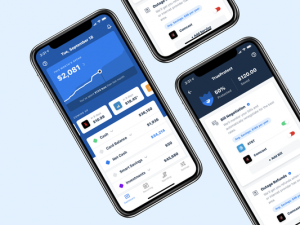Back in 2007, a 22-year-old Mark Zuckerberg gave some advice at Y Combinator’s Startup School: Do a startup before you’re old. In technology, he said, twentysomethings rule. The olds are useless.
“I want to stress the importance of being young and technical,” he said. “Young people are just smarter.”
That comment has not aged well. As we watch tsunamis of disinfo rage through social networks, we’re now suspecting it wasn’t so great for cocky young techies to so rapidly reupholster the public sphere. Those dudes may have been technically adept, but they were, as one early Twitter employee told me, “naive as fuck.” With little experience of the real world, the dewy pioneers were woefully unprepared for the hate speech, dog-piling, and sock-puppeted algorithm-juking that ran riot in the 2010s. Now we’re living in the wreckage.
Sure, innocence is great. But what if experience is even greater? Maybe we’d get better innovation if we left it to Zuckerberg’s elders. When it comes to building tools that help solve the world’s truly wicked problems, it’s the older visionaries who’ll get it done.
Consider the recent findings of a group of academics from MIT, Northwestern University, the National Bureau of Economic Research, and the US Census Bureau who examined the success rates of startups. When they homed in on elite “high-growth” tech firms, they discovered the average age of the founders was 45. What’s more, their chance of success didn’t decrease with age. It increased.
The study defined these accomplished companies as those with the fastest job growth and that had a successful acquisition or went public. Founders in their fifties were more than two and half times more likely to hit those marks than ones in their mid-twenties. Even those who had hits at a young age had bigger ones later in life.
As one of the researchers, MIT Sloan economist Pierre Azoulay, pointed out to me, Steve Jobs may have cofounded Apple in his twenties, but the company only became a world-spanning behemoth when Jobs presided over the invention of the iPhone. By that time, he was 51.
Why might older folks have better success with startups? Part of it is that they acquire better people skills. “They develop better empathy,” which is crucial in building devoted teams, notes Rich Karlgaard, Forbes publisher and author of the book Late Bloomers.
Tony Fadell, a wunderkind at Apple in his early thirties, founded Nest at age 41. The startups he created in his twenties failed to take off, but with Nest he had rocketing success. He attributes this to the acquisition of self-knowledge: understanding the importance not just of making a cool product but also what customers want, how to make a sale, the whole ball game.
Fadell loves young founders, but “they have so many blind spots,” he says, and they don’t understand the broad picture. “Or at least I didn’t.”
But I think the biggest value of older entrepreneurs isn’t merely that they succeed more often than younger ones. It’s that they’re better positioned to take on what’s sometimes called “tough tech”—the hard challenges of our age, like clean energy, curing disease, and climate adaptation.
Sure, young people are great at cranking out software. All they need is a laptop and an idea, and arguably they’re better at seeing opportunities in the world of culture (like Facebook or Snap). But if you want to pioneer new battery technology or bioengineering for growing crops in zones rendered arid by climate change, you’ll need to navigate regulated industries and pull off research that requires a PhD or more.
Today’s science is getting more and more complicated and specialized. “We’ve never met a biotech founder who’s 25 years old,” Azoulay notes. Fadell is an investor now and is putting money into “the hard stuff,” including biotech. He was an early investor in Impossible Foods, a company that wants to curb our consumption of C02-heavy meat by making plant-based substitutes and which was founded by a 57-year-old professor of biochemistry (see Pat Brown, page 73).
So maybe it’s time to actively unlock the power of older innovators. Tech firms could build more multigenerational teams, much the way hospitals pair younger surgeons (fast, eager to learn) with older ones (experienced, seen it all). Meanwhile, Silicon Valley investors should reconsider their ageist biases. “People over 45 basically die in terms of new ideas”—as venture capitalist Vinod Khosla has said—is a sentiment that clearly needs to be retired.
Clive Thompson (@pomeranian99) is a WIRED contributing editor. Write to him at clive@clivethompson.net.
This article appears in the November issue. Subscribe now.
More Great WIRED Stories
- The first smartphone war
- 7 cybersecurity threats that can sneak up on you
- “Forever chemicals” are in your popcorn—and your blood
- EVs fire up pyroswitches to cut risk of shock after a crash
- The spellbinding allure of Seoul’s fake urban mountains
- 👁 Prepare for the deepfake era of video; plus, check out the latest news on AI
- ✨ Optimize your home life with our Gear team’s best picks, from robot vacuums to affordable mattresses to smart speakers.



